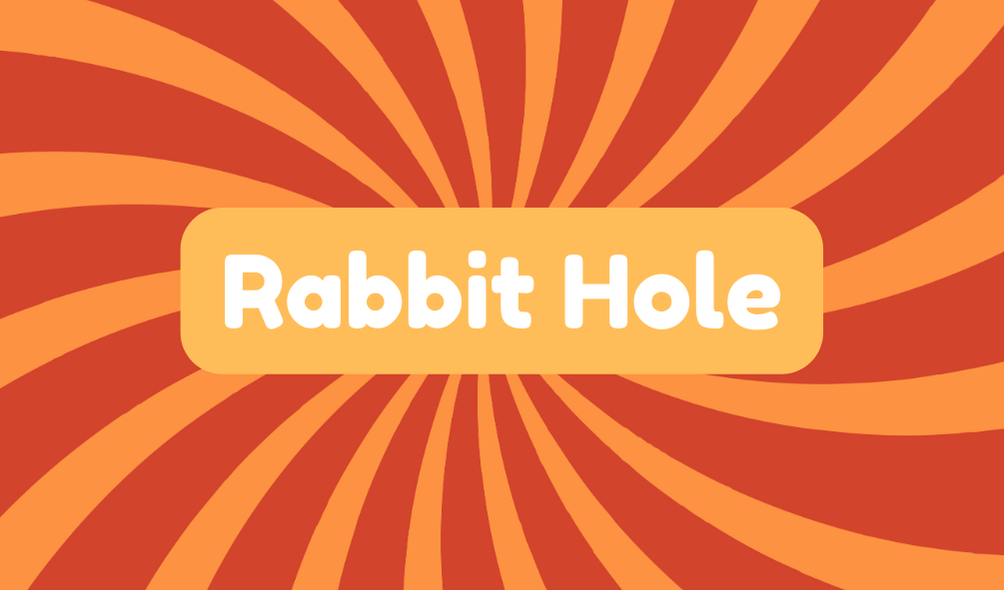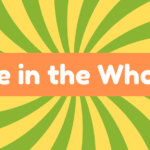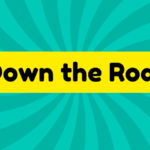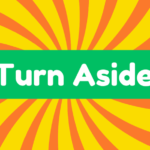A "rabbit hole" describes the complex and often confusing journey you can take when exploring a topic, especially online. This term originates from Lewis Carroll's 1865 book, "Alice's Adventures in Wonderland," where Alice's descent symbolizes unexpected complexity. You might say, "I fell into a rabbit hole while researching climate change," showcasing how easy it is to get lost in information. Today, the concept warns of distractions in our digital lives, reminding you to maintain focus. Understanding this term helps you navigate the chaos of endless information, opening the door to more insightful discoveries.
Synonyms
When you find yourself traversing a particularly confusing situation, you might describe it using various synonyms for "rabbit hole." Terms like "maze," "labyrinth," or "quagmire" capture that sense of being ensnared in complexity. Engaging in a curiosity spiral can often lead you down a digital descent, where the deeper you go, the harder it is to find your way back. Here are three other terms to reflect on:
- Vortex – Suggests a powerful pull into chaotic scenarios.
- Tangle – Implies a knot of confusion that's tough to unravel.
- Pitfall – Warns of the hidden dangers in complex situations.
Using these terms can help you articulate the bewildering experiences you face in today's chaotic, information-heavy environment.
Example of Sentences
Exploring the concept of a "rabbit hole" is easier when you can relate it to real-life situations. You might find yourself on a chaotic journey through the digital world with these examples:
- "You wouldn't believe how I slipped down a rabbit hole researching quantum physics online."
- "Late-night scrolling on social media always leads me to a rabbit hole of memes and distractions."
- "Last weekend, I started watching one documentary and ended up in a rabbit hole of true crime series."
Each scenario highlights how digital obsession can consume your time and focus. Being aware of these moments can help you regain control over your attention. After all, getting lost in content doesn't always yield productivity; sometimes, it just leaves you feeling disoriented.
Origin
The phrase "rabbit hole" traces its roots back to 1865, originating from Lewis Carroll's beloved book, "Alice's Adventures in Wonderland." In the story, Alice's unexpected plunge into a rabbit hole transports her to a whimsical, surreal world filled with bizarre characters and situations. This historical context highlights the literary significance of the rabbit hole as a metaphor for entering overwhelming experiences. It symbolizes a journey that can lead down unexpected paths, much like the ones we navigate today in our digital lives. While Carroll's original intent was playful, the modern usage reflects a deeper understanding of how easily one can get lost in complexities, raising questions about our engagement with chaotic environments.
Collocations
Diving into collocations with "rabbit hole" reveals a variety of phrases that capture its essence in context. You might notice how often this term intersects with concepts like cognitive dissonance and digital escapism. Here are three intriguing collocations to take into account:
- Digital rabbit hole – often describes the unpredictable journey through endless online content.
- Fell into a rabbit hole – used to express getting deeply engrossed in a topic, losing track of time.
- Chasing rabbit holes – refers to actively pursuing complex or obscure information, which sometimes leads to cognitive overload.
While these collocations highlight the allure of exploration, they also serve as a cautionary tale about the potential chaos that can arise from relentless engagement with digital distractions. Be wary; knowing when to disengage is essential.
How to Use in Everyday Language
Sometimes, conversations naturally lead you down a rabbit hole, especially when discussing hobbies or interests. You might start with a simple question, but before you know it, you're lost in a maze of internet searches, facing digital distractions and cognitive overload. To navigate these situations wisely, keep a mental check on how much time you spend diving deep into a topic. If you find yourself endlessly scrolling or researching, pause and evaluate whether it's enriching or merely wasting time. Using "rabbit hole" in your day-to-day life can remind you to stay grounded and focused. Remember, while curiosity is valuable, it's important to balance it with awareness of your limits, ensuring your explorations remain enjoyable and productive.
Why Is It Still Relevant Today?
In our fast-paced digital world, the concept of going down a rabbit hole remains highly relevant as we continuously engage with vast amounts of information online. Digital distractions can easily lead you into a spiral of endless exploration, often overshadowing your productivity. It's not just a matter of losing time; the psychological implications can be quite concerning.
| Aspect | Impact |
|---|---|
| Digital Distractions | Considerably decrease focus |
| Attention Management | Leads to cognitive overload |
| Time Perception | Alters how you prioritize tasks |
Understanding the rabbit hole phenomenon allows you to navigate the digital landscape more wisely. Recognizing when you've slipped down a rabbit hole can help reclaim your time and mental clarity.







